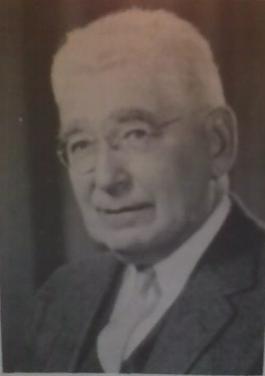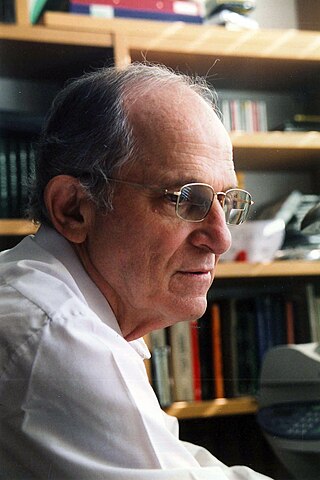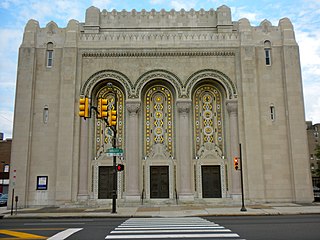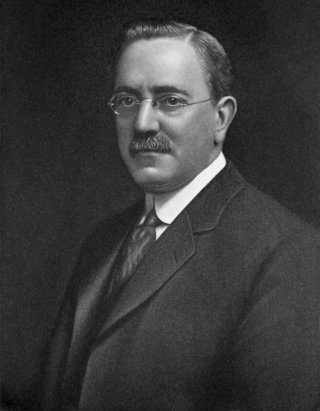Related Research Articles

The Rodef Shalom Biblical Botanical Garden in Pittsburgh, Pennsylvania's Shadyside section is a Biblical botanical garden.

Rodef Shalom Congregation is an historic Reform Jewish congregation and synagogue located at 4905 Fifth Avenue, Pittsburgh, Pennsylvania, in the United States. The landmark building was designed by architect Henry Hornbostel and completed in the Beaux-Arts style.

Solomon Bennett Freehof was a prominent Reform rabbi, posek, and scholar. He served as president of the Central Conference of American Rabbis and the World Union for Progressive Judaism. Beginning in 1955, he led the CCAR's work on Jewish law through its responsa committee. He also spearheaded changes to Reform liturgy with revisions to the Union Prayer Book (siddur). For many years, he served as the pulpit rabbi at Rodef Shalom in Pittsburgh, PA.

Moshe Zemer was a Reform Rabbi in Israel between 1963-2011. He was the co-founder of Jewish Reform institutions in Israel and served in key positions in them, including as chair of MARAM, board member of the Israel Movement for Progressive Judaism, board member of the Union for Progressive Rabbis in the United States, and a senior lecturer of Jewish Studies at the Hebrew Union College in Jerusalem.

Walter Jacob was an American Reform rabbi. He was rabbi at the Rodef Shalom Congregation in Pittsburgh from 1955 to 1997. He served as chairman of organizations such as the Central Conference of American Rabbis and World Union for Progressive Judaism. Jacob wrote a book, Christianity Through Jewish Eyes in 1974, leading to interfaith dialogue. He founded the Solomon B. Freehof Institute for Progressive Halakhah in 1991, an international forum for Jewish law. In Germany, he co-founded the Abraham Geiger College, the first rabbinic seminary in Central Europe since the Holocaust, in 1999.

Congregation Rodeph Shalom, is an historic Reform Jewish congregation and synagogue located at 615 North Broad Street, Philadelphia, Pennsylvania, in the United States. Established in 1795, it is the oldest Ashkenazic synagogue in the Western Hemisphere. It is noted historically for its leadership of the Reform movement among American Hebrew congregations, for its spiritual influence upon international Jewry, and for its unique 1927 Byzantine and Moorish Revival synagogue building, with Art Deco finishes, on North Broad Street, listed on the National Register of Historic Places since 2007.
Adolph Moses Radin was a Polish-born American Jewish rabbi.
Martin Zielonka was a German-born American rabbi.
Ludwig Behr Bernstein was a Latvian-American Jewish-American sociologist and social worker.

David Blaustein was a Belarusian-born American rabbi, educator, and social worker.

Josiah Cohen was an American lawyer and judge.
Philip Klein was a Hungarian-born rabbi who ministered in the Russian Empire and America.
Louis Wolsey was an American Reform rabbi.
Samuel Harry Goldenson was a Polish-born American rabbi.

Adolphus Leo Weil was a Jewish-American lawyer from Pittsburgh, Pennsylvania.
Raphael Lasker was a German-born American rabbi in Ohio, New York City, and Boston.
Isaac S. Moses was a German-born Jewish-American rabbi.
Aaron Mordecai Ashinsky was a Polish-born American rabbi. He spent most of his career in Pittsburgh, Pennsylvania.
Adolf Guttmacher was a German-American rabbi who mainly ministered in Baltimore, Maryland.
Joseph Leonard Levy was an English-American rabbi who ministered in England and America.
References
- ↑ Adler, Cyrus, ed. (1903). The American Jewish Year Book, 5664. Philadelphia, P.A.: The Jewish Publication Society of America. pp. 79–80 – via Google Books.
- ↑ "M-M-1872-0000069". The NYC Historical Vital Records Project. Retrieved 2024-11-01.
- 1 2 Levy, J. Leonard (1905). "Rev. Dr. Lippman Mayer". Publications of the American Jewish Historical Society (13). American Jewish Historical Society: 147–149. ISSN 0146-5511 – via JSTOR.
- ↑ Landman, Isaac, ed. (1942). The Universal Jewish Encyclopedia. Vol. 7. New York, N.Y.: The Universal Jewish Encyclopedia, Inc. p. 424 – via HathiTrust.
- ↑ "Hymeneal". The Pittsburgh Commercial . Vol. IX, no. 98. Pittsburgh, P.A. 3 January 1872. p. 4 – via Google News Archive.
- 1 2 "DR. LIPPMAN MAYER". The Jewish Voice. Vol. XXXVII, no. 12. St. Louis, M.O. 15 September 1904. p. 8 – via Historical Jewish Press.
- ↑ "Rabbi Lippman Mayer". The Pittsburgh Press . Vol. 21, no. 240. Pittsburgh, P.A. 30 August 1904. p. 4 – via Google News Archives.
- ↑ "Memorial Services for the Late Rev. Dr. Lippman Mayer". The Jewish Criterion . Vol. XIX, no. 13. Pittsburgh, P.A. 9 September 1904. p. 3 – via Carnegie Mellon University Digital Collections.